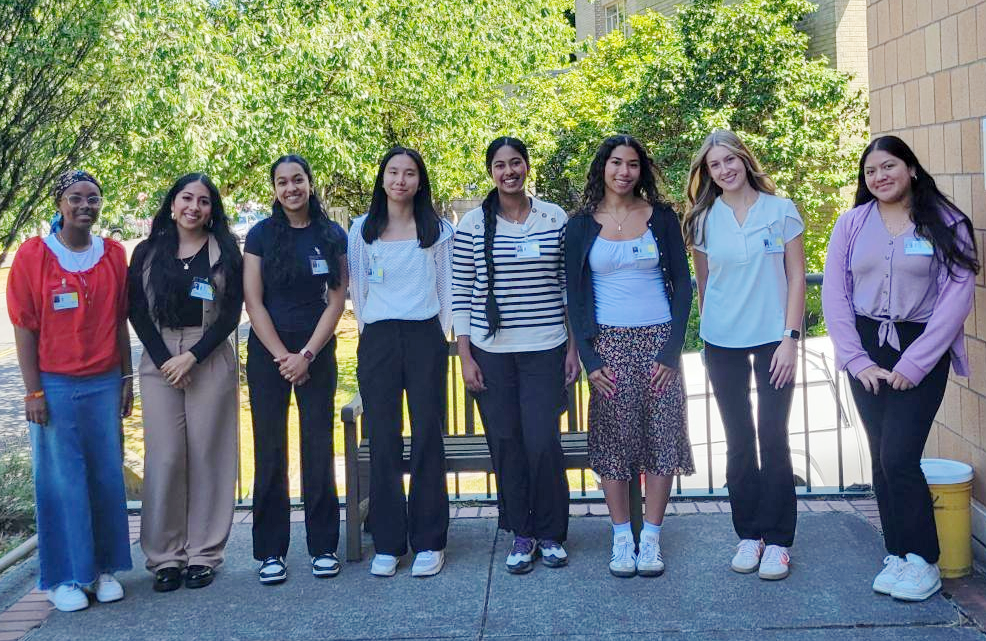As a rising college student preparing for a future in medicine, I’ve always known I wanted to care for others. But it wasn’t until this summer through my internship with OHSU’s University Center for Excellence in Developmental Disabilities (UCEDD) that I truly understood what inclusive, person-centered care looks like for individuals with disabilities.
When I applied for the internship, I was eager to learn more about the intersection of healthcare and disability advocacy. My long-term goal is to attend medical school and become a specialist who treats patients with complex developmental and genetic conditions. I want to be the kind of doctor who listens deeply, understands disability not just as a diagnosis but as a lived experience, and promotes equity in every clinical interaction.
One of my proudest internship projects was leading a book donation initiative for Doernbecher Children’s Hospital. With support from local partners like the Children’s Book Bank, outreach to clinicians, and donations from the community, I helped collect and organize over 180 children’s books. I sorted them by age group, cultural background, disability representation, and interactive type (such as coloring, word searches, and flip-flap books). These books now live permanently in DCH’s clinic waiting areas, offering families and young patients stories where they can see themselves reflected. A standout is Mieko and the Fifth Treasure by Eleanor Coerr. The story follows a young Japanese girl navigating life after a hand injury that affects her ability to practice calligraphy, a skill she deeply values. It gently explores themes of disability, emotional healing, and how adapting to new circumstances can lead to strength, resilience, and personal growth.
In clinic, I had the opportunity to shadow a multidisciplinary team at the Down Syndrome Clinic, including occupational therapists (OTs), speech-language pathologists (SLPs), and medical providers. I observed how each professional contributed their expertise to build a collaborative, individualized care plan. I also saw how real-time translators were used to support families who speak languages other than English, ensuring every caregiver could fully understand and participate in their child’s care. It was a powerful example of communication access in action.
As a group, we watched Crip Camp, a documentary that opened my eyes to the history of disability rights, something I hadn’t learned before. It showed how disabled activists fought for accessibility and justice, inspiring me to see disability as part of identity and community. This experience motivates me to be an advocate who respects lived experiences and works to break down barriers in healthcare and beyond. They also let us participate with Go Baby Go, a nonprofit that adapts ride-on cars and tools to support mobility for children with disabilities. As part of that initiative, I helped adapt a children’s storybook by highlighting key words and making easier-to-turn pages. I was surprised by how even small changes could make a big difference in accessibility. It also opened my eyes to how many innovative projects Go Baby Go is involved in like creating tools and toys that are easier for people with disabilities to use.
This internship helped me grow not only as a student, but as a future provider and ally. I now carry a deeper understanding of how healthcare can empower or exclude, and a stronger commitment to making it truly inclusive for all. I’m incredibly grateful to the OHSU UCEDD and the Institute on Development and Disability for this experience, and I hope to take everything I’ve learned here into medical school and beyond. [HS1] I would love to return to OHSU in the future to engage in more research and continue contributing to meaningful projects, this time with even more knowledge and the support of dedicated professionals who are passionate about inclusive care.
Nihitha Vimalan, 2025 OHSU UCEDD Summer Intern










